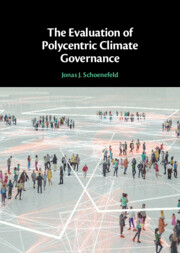Book contents
- The Evaluation of Polycentric Climate Governance
- The Evaluation of Polycentric Climate Governance
- Copyright page
- Contents
- Figures
- Tables
- Preface
- Abbreviations
- 1 Introduction
- 2 Policy Evaluation in Polycentric Governance Systems
- 3 Climate Policy Evaluation: The EU Level, Germany, and the UK
- 4 State-Funded Evaluation
- 5 Society-Funded Evaluation
- 6 Comparing State-Funded and Society-Funded Evaluation
- 7 Evaluation in Polycentric Governance: A Theoretical Analysis
- 8 Conclusions and New Directions
- Book part
- References
- Index
6 - Comparing State-Funded and Society-Funded Evaluation
Published online by Cambridge University Press: 06 July 2023
- The Evaluation of Polycentric Climate Governance
- The Evaluation of Polycentric Climate Governance
- Copyright page
- Contents
- Figures
- Tables
- Preface
- Abbreviations
- 1 Introduction
- 2 Policy Evaluation in Polycentric Governance Systems
- 3 Climate Policy Evaluation: The EU Level, Germany, and the UK
- 4 State-Funded Evaluation
- 5 Society-Funded Evaluation
- 6 Comparing State-Funded and Society-Funded Evaluation
- 7 Evaluation in Polycentric Governance: A Theoretical Analysis
- 8 Conclusions and New Directions
- Book part
- References
- Index
Summary
Building on the previous chapters, this chapter compares state and society funded climate policy evaluation with a view to the three foundational ideas of polycentric governance, namely self-organization, context and interactions between governance centers. While self-organization through climate policy evaluation is limited, the comparison reveals that society-funded evaluations engaged more deeply with the context of climate policy than the state-funded ones. Society-funded evaluation also used more evaluation criteria in their work. But state funders appear to have greater levels of resources, which manifest in terms of the numbers of methods that they use, as well as more quantitative comparability metrics. The latter may help to carry insights from one governance center to another. On the whole, society and state funded evaluation therefore appear complementary, each uniquely contributing to polycentric climate governance. However, in both groups, there remains ample room for development with a view to leveraging the synergies of polycentric governance by the means of evaluation.
Keywords
- Type
- Chapter
- Information
- The Evaluation of Polycentric Climate Governance , pp. 153 - 183Publisher: Cambridge University PressPrint publication year: 2023

